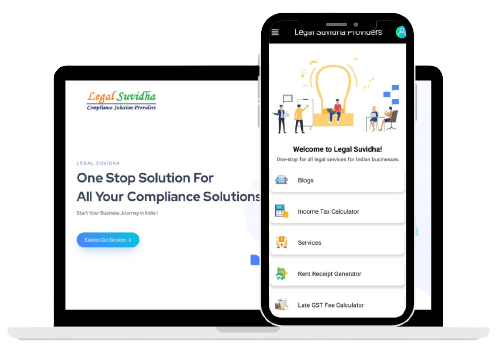ISO 27001: Information Security Management
ISO 27001: Information Security Management – A Simple Guide In today’s digital world, keeping sensitive information safe is more important...
A licensing agreement is a legal contract between two parties, where the licensor (owner of a product, technology, or intellectual property) grants the licensee (a person or business) the right to use the licensor’s product, technology, or intellectual property for a specified period of time and under certain conditions.

Happy Clients
Years Experience

Happy Clients
Years Experience
The licensing agreement typically outlines the terms and conditions of the license, including the scope of the license, the rights and obligations of both parties, the payment structure, and any restrictions or limitations on the use of the licensed product or technology.
Licensing agreements are commonly used in many industries, such as software, music, and manufacturing. For example, a software company may license their software to another company for a fee, allowing the other company to use the software for their business operations. A music artist may license their music to a film studio for use in a movie soundtrack.
Licensing agreements can provide many benefits, such as allowing the licensor to generate revenue from their product or technology without having to manufacture or distribute it themselves, while allowing the licensee to access and use a product or technology they may not have otherwise been able to develop or create on their own.
| Market expansion | A licensing agreement allows the licensor to expand its market reach by granting the licensee the right to use and distribute its products or services in new territories or industries. This enables the licensor to tap into new markets without the need for significant investments in infrastructure or operations. |
| Revenue generation | Licensing agreements provide a source of revenue for the licensor through royalty payments or upfront fees. The licensor can monetize its intellectual property by granting others the right to use it, thereby generating additional income streams. |
| Cost savings | For the licensee, a licensing agreement can result in cost savings compared to developing or creating a similar product or technology from scratch. By licensing existing intellectual property, the licensee avoids expenses associated with research, development, and market testing. |
| Risk mitigation | A licensing agreement can help mitigate risks for both parties. The licensor shares the risks associated with market expansion, production, or distribution with the licensee, reducing its own exposure. Similarly, the licensee can mitigate risks by leveraging established intellectual property rather than investing in unproven ideas. |
| Access to expertise | Licensing agreements often provide the licensee with access to the licensor’s expertise, knowledge, and technical support. This can include training, ongoing assistance, or updates related to the licensed intellectual property, enabling the licensee to leverage the licensor’s specialized skills and experience. |
Step 1: Identifying the Intellectual Property: The licensor identifies the intellectual property to be licensed, which may include patents, trademarks, copyrights, trade secrets, or other proprietary information.
Step 2: Negotiating the Terms: The parties negotiate the terms of the licensing agreement, including the scope of the license, payment terms, and any limitations or restrictions on the use of the intellectual property.
Step 3: Drafting the Agreement: Once the terms have been negotiated, the parties draft the licensing agreement. This may involve working with legal counsel to ensure that the agreement is legally binding and protects the interests of both parties.
Step 4: Reviewing and Signing the Agreement: Both parties review the licensing agreement to ensure that they understand and agree to its terms. Once all parties are satisfied, they sign the agreement.
Step 5: Implementation and Monitoring: The licensee begins to implement the licensed intellectual property, and the licensor monitors compliance with the terms of the agreement. This may involve regular reporting, quality control, or other measures to ensure that the licensed intellectual property is being used appropriately.
Step 6: Renewal and Termination: The licensing agreement may have a specific term, after which it can be renewed or terminated. If either party wishes to terminate the agreement early, they must follow the procedures outlined in the agreement.
1. Patent or Trademark Registration
2. License Agreement
3. Non-Disclosure Agreement (NDA)
4. Intellectual Property Assignment Agreement
5. Certificates of Insurance
6. Compliance Reports
Any type of IP can be licensed under a licensing agreement, including patents, trademarks, copyrights, trade secrets, and other proprietary information.
Yes, a licensing agreement can be both exclusive and perpetual, meaning that the licensee has exclusive rights to use the licensor’s IP indefinitely.
Yes, licensing agreements can be terminated early if certain conditions are met, such as breaches of the agreement or changes in market conditions.
After the license term has expired, the licensee is no longer authorized to use the licensed IP unless they negotiate a new licensing agreement with the licensor.
A licensing agreement allows one party to use another party’s IP for a specific purpose or period of time, while a franchise agreement involves a more comprehensive relationship between the franchisor and franchisee, including the use of trademarks, trade secrets, and other proprietary information.
Yes, licensing agreements can be modified or amended if both parties agree to the changes and execute a written agreement reflecting the modifications.
#answer
#answer
#answer
#answer
With a commitment to exceeding expectations and a passion for delivering results, choosing us means choosing a partner dedicated to your success.

We provide free of cost consultation and legal advice to our clients.

We are a team of more than 15+ professionals with 11 years of experience.


All our services are online no need you to travel from your place.

There are no hidden & extra charges* other than the quote/invoice we provide.

We aim that all our customers are fully satisfied with our services.

We value your time and we promise all our services are delivered on time.

We provide free of cost consultation and legal advice to our clients.
In this Journey of the past 14+ years, we had gained the trust of many startups, businesses, and professionals in India and stand with a 4.9/5 rating in google reviews.We register business online and save time & paperwork.
Trustindex verifies that the original source of the review is Google. Mayank & the Legal Suvidha team are fantastic. They really try to understand the business like insiders and don't give you templatized solutions. The staff are extremely supportive and go out of their way to help you. I would recommend Mayank to anybody new to the startup ecosystem!Trustindex verifies that the original source of the review is Google. Great experience with smooth process during the startup india registration Excellent coordination and teamwork with effective implementation in very limited timeTrustindex verifies that the original source of the review is Google. Sound expertise, good coordination, efficient and timely execution.Trustindex verifies that the original source of the review is Google. Good service and very helpfulTrustindex verifies that the original source of the review is Google. We had a great experience working with the LegalSuvidha team - we have used them for both our Pvt Ltd and LLP formation and their team has been very proactive, knowledgeable, prompt and helpful. They helped with all DSCs as well and couriered them to us. Very professional and thorough. We also got our Startup India , MSME registrations through them promptly. Overall highly recommended. Special callout to Nidhi, Saloni, Anjalin, Shreya and Priyanka for promptly helping us throughout the process.Trustindex verifies that the original source of the review is Google. I am writing to thank you for the quality of service provided by your company. We sincerely appreciate your efficient, gracious customer service, the level of detail and accountability you have demonstrated and the way you conduct business as a whole. A special Thanks to Ms Saloni for her great help throughout.Verified by TrustindexTrustindex verified badge is the Universal Symbol of Trust. Only the greatest companies can get the verified badge who has a review score above 4.5, based on customer reviews over the past 12 months. Read more


Explore more of our blogs to have better clarity and understanding
of the latest corporate & business updates.
ISO 27001: Information Security Management – A Simple Guide In today’s digital world, keeping sensitive information safe is more important...
Operating an online store comes with numerous benefits—but also regulatory obligations. Securing the right licenses and permits is essential to...
Directors shape a company’s governance and strategic direction. Among board members, Executive Directors and Non‑Executive Directors (NEDs) play distinct yet...
The Articles of Association (AOA) form the backbone of a company’s internal governance, setting out the rules, rights, and responsibilities...
Selecting the optimal legal form is a critical decision when launching your U.S. venture. Both LLCs and Corporations offer liability...
Expanding your U.S.-based business into India unlocks access to a vast consumer market, a skilled workforce, and cost advantages—but also...
Here are some answers to potential questions that may arise as you start your business.
Register your business, obtain necessary licenses, and fulfill tax obligations.
Consider factors like ownership, liability, and tax implications to choose from options like sole proprietorship, partnership, or company registration.
Choose a unique business name, obtain required IDs like Director Identification Number (DIN), and file incorporation documents with the Registrar of Companies (ROC).
Obtain GST registration, trade licenses, and any industry-specific permits required to operate legally.
Maintain accurate financial records, file tax returns on time, and adhere to the tax laws applicable to your business.
Yes, startups in India can benefit from various government schemes offering tax exemptions, funding support, and incubation facilities.
Secure patents, trademarks, or copyrights to safeguard your intellectual assets from infringement or unauthorized use.
Challenges include navigating bureaucratic hurdles, complying with complex regulations, and competing in a crowded marketplace.
Looking For More Information? Contact Us
Sign up to receive email updates on new product announcements, special promotions, sales & more.
Redefining the experience of legal services. Now all Professional Services in a Single Click !


Copyright © 2025 Legal Suvidha Providers LLP. All rights reserved.
